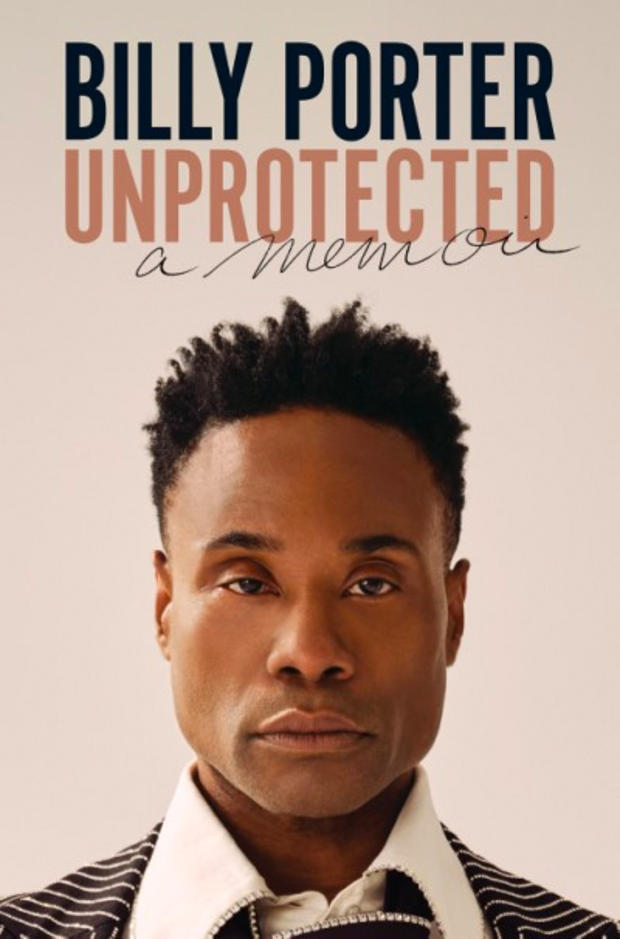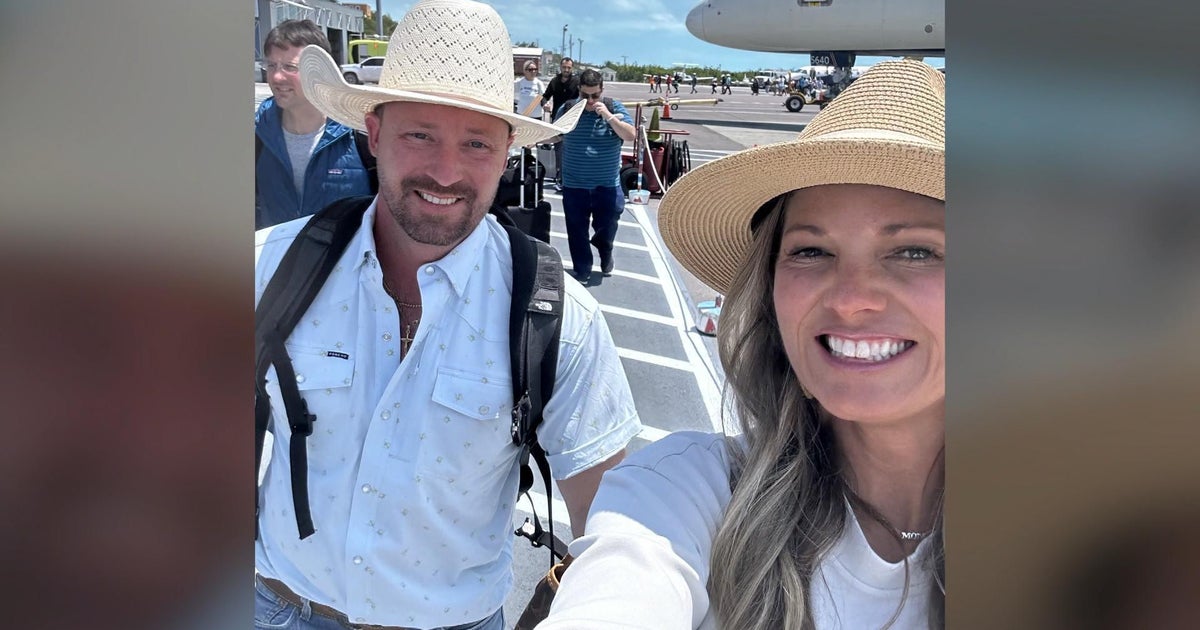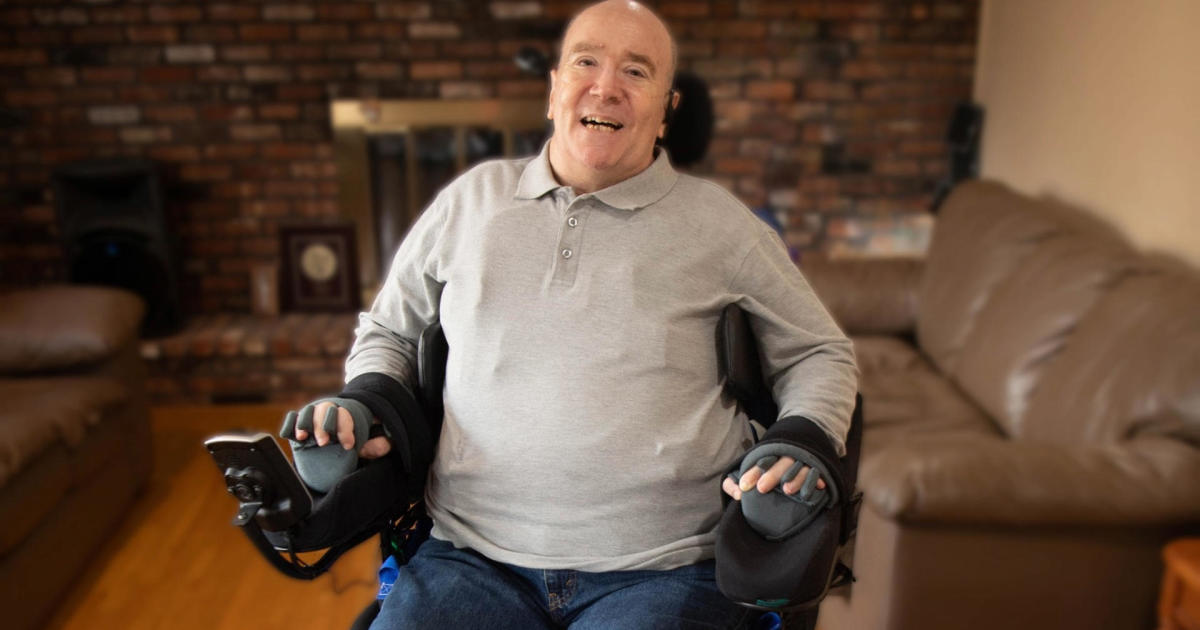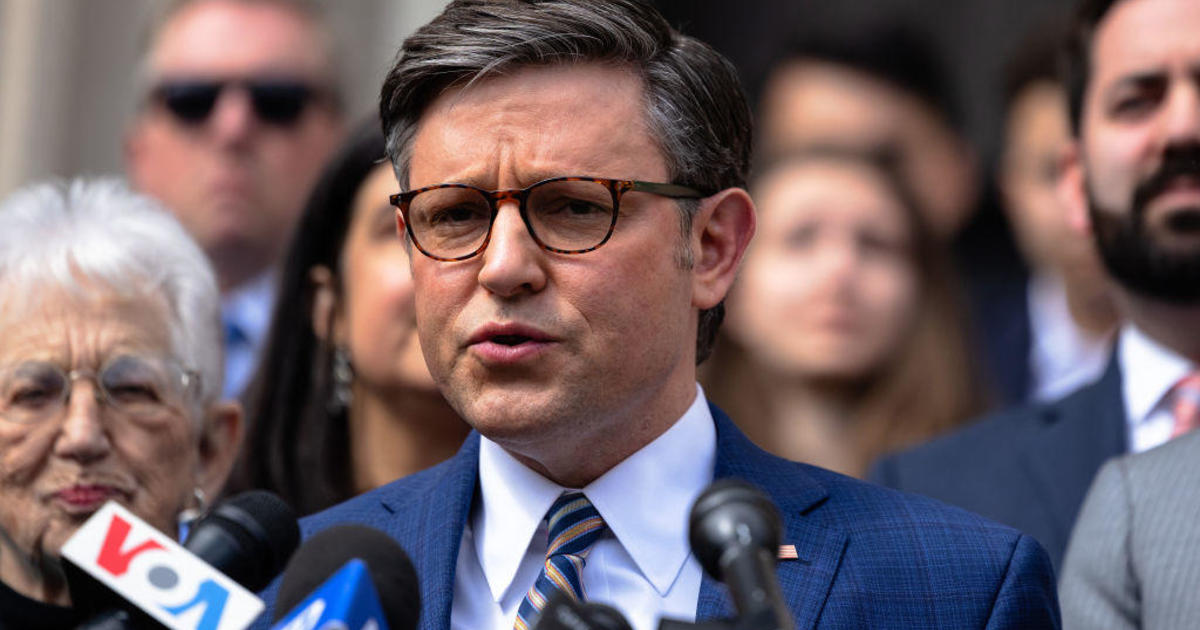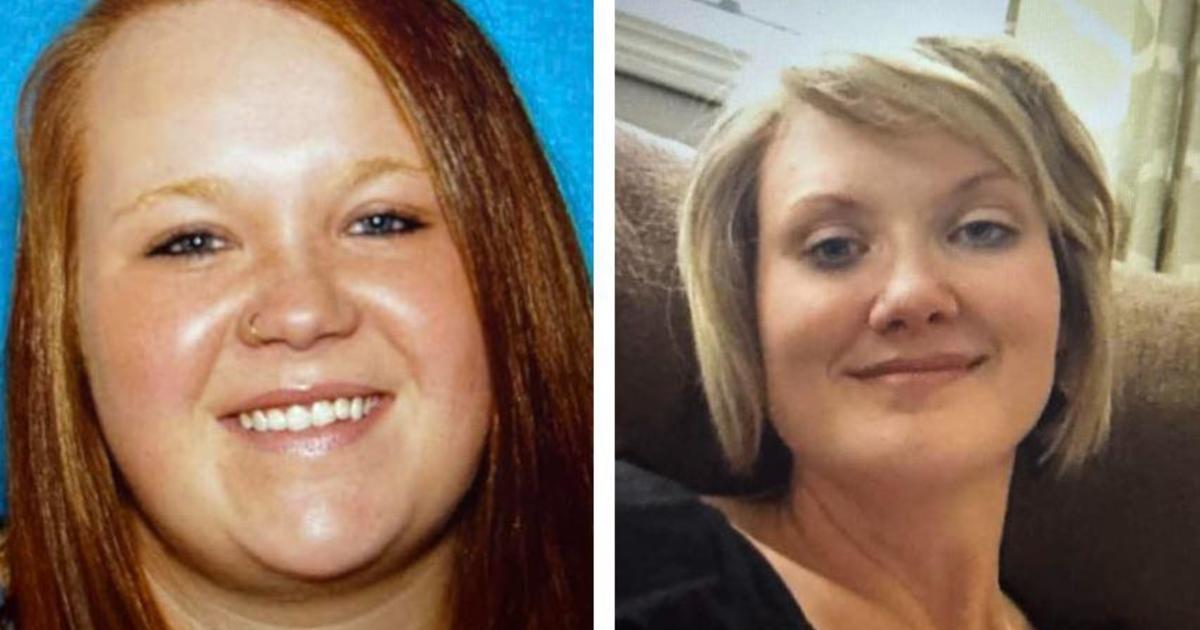Book excerpts: "Unprotected: A Memoir" by Billy Porter
In excerpts adapted from "Unprotected: A Memoir" (Abrams Press), the Emmy-, Tony- and Grammy-winning actor-singer-dancer Billy Porter writes of his introduction to musical theater; and attending an open-call audition for "Dreamgirls."
Read the excerpts below, and don't miss Seth Doane's interview with Billy Porter on "CBS Sunday Morning" October 10!
By the end of seventh grade, I had thrown myself headlong into performing in two musicals and familiarized myself with countless others by checking albums out of the Oakland branch of Carnegie Library. "Oklahoma!," "Hello, Dolly!," "My Fair Lady," "West Side Story," "Gypsy," "Pippin," "A Chorus Line," "Chicago," "The Sound of Music," "Damn Yankees," "Annie," "The Music Man" ... the list went on and on. Each of them sparked me in a different way. The lyrics were uplifting and comic and clever. They offered an escape from the moral rigidity and judgment of the church. They promised a wider and more life-affirming world than the one I was trapped in.
But it was impossible not to notice that none of them had been written with me in mind. There was nary a Black person in any original cast. "The Wiz" had been my first and last experience of Broadway actors who looked like me. I'd held that evening so close to me for so long, held on to it as tightly as I could through the months and years that followed, but I hadn't experienced anything like it again.
And then it was the second Sunday in June 1982 (an annual date that in some circles would be referred to as gay Christmas). I was alone in the kitchen, doing the dinner dishes while watching the Tony Awards on the small color television we kept on the counter. Tony Randall sat in a velvet high-back armchair and introduced a scene from one of the nominees for Best Musical, "Dreamgirls." Then Jennifer Holliday, playing Effie, a singer ousted from the group for which she was the lead, emerged from the back of the stage. And when Holliday sang, I was struck into stillness. The back of my neck prickled, and it was as if I could feel the roots of my hair tingling. I cradled myself in a ball on the floor, stunned, my eyes transfixed on the screen.
From the first few moments of her solo, I knew I was bearing witness to something extraordinary. Holliday's performance was a tour de force of depthless grief and vocal virtuosity. There seemed to be nowhere her voice could not go. She was a tempest in a tantrum as she growled and howled and keened and bellowed and squalled her way through her spurned woman's scorching blowtorch of a swan song.
I had never seen anyone give so much to a role. Holliday's Effie held nothing back at all. I could hardly imagine the fearlessness required to wade so deep into what she knew of agony in front of a live audience. It was at once an act of sheer will and utter surrender.
And yet there was something in her performance that left me lit with recognition. She sang the way we sang in church. She sang in the gospelian style I was raised in. She had taken that high-octane, soul-belting, full-throttle gospel sound to the Broadway stage and brought mainstream audiences to ecstasies with it: I heard in the rapture of her audience a message expressly for me. I thought, This can be more than just an extracurricular pleasurable activity in my life. I can do this musical theater thing too, and I can make a living from it.
I knew that much in the moment, though there was so much more I couldn't know.
As taken as I was with Holliday's performance, I could never have imagined how long a foreshadow this song would cast across the next several decades of my life. I didn't yet understand that Effie, Holliday's character, was a singer being fired in part because she didn't fit the industry's idea of a dreamgirl: lighthearted and pretty, thin, sparkling and smiling, perceived by the dominant society as unthreatening, benign.
I wasn't familiar with the story line. Had no notion of what would happen next. From what I'd seen unfold on the Tony Awards stage, it looked like the end of the road for Effie: time up, game over. She had been dropped, abandoned, left on the side of the road. I didn't yet know that she would languish far from the limelight for many years, or that ultimately, like the phoenix, she would rise. And that when she did, she would do so as none other than her authentic self in all its glory: raw, real, full-bodied, full-throated, and Blackity Black Black Black. There was no way to know, either, just how much I would come to identify with her message, delivered with the righteous ire of a thousand fire-and-brimstone-driven Furies—to the man she loves, yes, but also to the soulless, ruthless, dehumanizing industry bent on driving her out of the light.
***
In the spring of 1986, I saw in Backstage magazine that "Dreamgirls" was hosting open-call auditions in Chicago. Reading that ad was like being touched by lightning. I felt the electricity in my bone marrow. And from that moment on, it was as if a fever had taken hold of me. I had to be there. I'd find a way. I would somehow get to Chicago and audition, so I could be in "Dreamgirls" and out of my house forever.
The audition was on a Friday morning. I don't remember why, but by sheer chance, I had that Friday off from school. I also had spending money from the many jobs I'd worked up to that point. So I told my mother I was spending the night at a friend's house.
That Thursday evening, I packed an overnight bag, took a bus to the Amtrak station downtown, and bought myself a round-trip train ticket. Then I rode that train all night, for thirteen straight hours, all the way to Chicago. I arrived Friday morning with my sheet music, my dance clothes, and an address. I soon found myself at the top of a huge prewar skyscraper overlooking Lake Michigan. The floor was empty, or so it seemed to me. And then I found the room. No one else was there.
I couldn't believe it. Nobody wanted to audition for "Dreamgirls"? No one understood the impact of this musical on me ... on the world? I sat on the floor for about fifteen minutes, and just as I was about to give up, two men showed up, one Black and one White. I would soon learn that the White man was Vinnie Liff, founder of Johnson-Liff casting in NYC. The Black man was Weyman Thompson. He had not only played the character of Curtis Taylor Jr. in the national tour of "Dreamgirls," but also was what we would call the resident director of the piece. Michael Bennett, the director-choreographer, had handed over the reins to Vinnie and Weyman to preserve the integrity of the work as first-class productions were now being staged all over the world.
As soon as the pianist arrived, I was called in for my audition. I belted out "Just Once" by James Ingram, one of my favorite R&B ballads. When I finished singing, Vinnie Liff gazed at me with an expression that made me uneasy. I'd seen that look in a thousand pairs of eyes. It was the gaze of an adult in the presence of a precocious child.
"That was quite something, young man," he said. His tone alarmed me further. It was gentle and paternal and somewhat patronizing. "Your voice is simply amazing. How old are you?"
I felt I had no choice but to lie. The breakdown specified that applicants had to be eighteen to twenty-five. I was sixteen.
"I'm eighteen, sir."
"That's ... wonderful," he said carefully. "And ... did you have the day off from school today?"
"Oh, yes, sir. I did."
"Where do you go to college?"
"Well, actually, I'm still in high school," I told him. "I'm a senior." Another lie. I was a junior.
"All right. Then where do you go to high school?"
"I attend Taylor Allderdice and the Creative and Performing Arts high schools in Pittsburgh."
His eyebrows shot up. "You're from Pittsburgh? Then why are you in Chicago? Do you have family here?"
"No, sir."
"You just happened to be in Chicago?"
"No, sir. I—I came for the audition."
He leaned back in his seat with a sidelong glance at Weyman. "You came ... from Pittsburgh ... to Chicago for this audition? (What I came to learn later was that Actors' Equity, our actors' union, requires Broadway producers to have open casting calls every six months whether they need to or not. So—they really didn't need anybody. This was just one of those required calls.)
"How did you get here?"
"I took an Amtrak train last night, and I just arrived this morning. I came straight here, and I'll be getting back on the train to return to Pittsburgh once we're finished."
Vinnie let out a long, low whistle. "Wow," he said. "That is some kind of dedication, son. It's going to serve you well."
"Thank you, sir."
"Well, I wish I could offer you a job on the spot, but the reality is that, as talented as you are, you're just a little bit too young."
"But I'm eighteen!" I said, hoping I didn't sound as frantic as I felt. "The breakdown said the age range you're looking for is eighteen to twenty-five."
"Yes. Yes. I get it. You're 'eighteen,'" Vinnie said. "However, you are far too young for our show. But I want to tell you something." Now he looked me straight in the eye and spoke with a low, level intensity that I knew was heartfelt and sincere. "Keep going. Your talent is extraordinary. And with a drive like the one you've shown us today, you will be fine. Continue to work, continue to train, and come back to us real soon."
His words were kind, but they were no comfort. I knew no argument I could summon could possibly change his verdict, but I stood there for another moment anyway, tossing ideas about in my mind for some way to alter this disastrous outcome. It couldn't all be over just like this, could it? After I'd come all this way? My heart felt like a trapped bird beating its clipped wings inside the cage of my chest, and I could feel the hot tears building behind my eyes. Somehow I managed to hold it together as I took my leave of the audition room.
But I wept all the way home.
Adapted excerpt from "Unprotected: A Memoir" by Billy Porter, published by Abrams Press. © 2021 Billy Porter. Available October 19.
For more info:
- "Unprotected: A Memoir" by Billy Porter (Abrams), in Hardcover, eBook and Audio formats, available October 19 via Amazon and Indiebound
- Follow Billy Porter on Twitter, Instagram and Facebook
